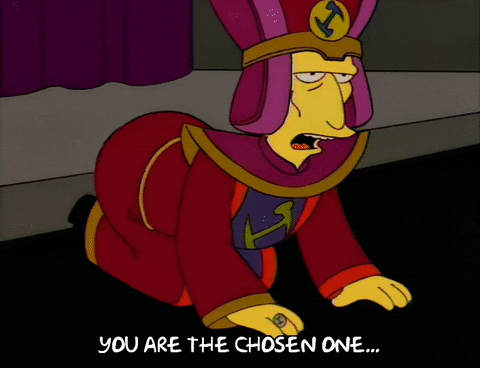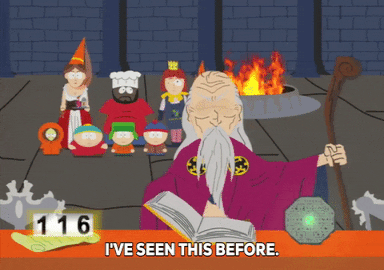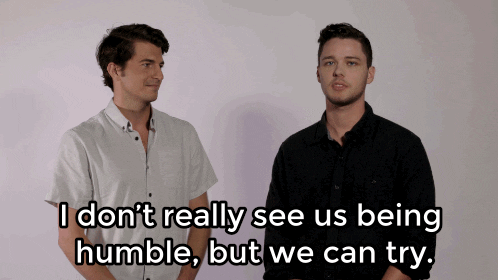You know how every parent thinks their kid is perfect, an angel, literally the second coming of Christ?
Well they do. And it’s something I call the Parent Paradox. Because if every parent thinks their child is the best, then technically speaking only one of them can be correct. The other 99.9999999% are, unfortunately, wrong.
But this isn’t a newsletter about how your kid sucks. I’ll save that for another day.
This is a newsletter about a different kind of baby - your product.
Because let’s face it, most founders treat their product like it’s their baby. They’re over-protective, they coo over it on a daily basis, they constantly shove it in people’s faces, and most of all: they think their product is the best.
The truth is, founders tend to suffer from the Parent Paradox too.
They think their product is special.
They assume people go to their website and are like:
When the reality is people go to their site and think:
Because ultimately unless your product is actually one-of-a-kind, they’ve seen it all before. They’ve seen the same features, the same benefits, the same use cases.
And if they haven’t seen it before, they don’t have the faintest idea of how it can help them.
Your product isn’t the unique snowflake that you think it is.
And that’s both good and bad.
It’s good because it means that the market for your product has already been validated. If you create a new CRM, you don’t have to research whether people want a CRM. You already know they do. The market already exists. That’s a great position to be in.
It’s bad, however, because if you’re in an existing market you already have potentially dozens of competitors. There are loads of CRMs out there. So standing out and convincing people to choose your product is tricky.
Now, if you’re suffering from the Parent Paradox. Or if you’ve got Tina Turner syndrome and think your product is simply the best. Then you’re in trouble.
Because if you go to market with that as your positioning and messaging strategy, you’re going to look stupid. Claiming to be better makes you look deluded and untrustworthy. And even on the off-chance some poor sap reads that and believes it, being better isn’t really a reason to be chosen.
So how do I overcome the Parent Paradox?
It sounds a little wishy-washy, but the key to overcoming this is to be humble.
There are several ways you can humble yourself when it comes to your product.
1 - Talk to your users
Your users are brutally honest at times. And it’s easy as a founder to put your fingers in your ears, belt out Tina Turner, and ignore them. That’s product’s problem. It’s sales’ problem. It’s CS’s problem.
But that’s a mistake. Even you, as the founder, should be listening to customers. Even if it’s indirectly through other people on your team. Set aside some time each week and listen to what your customers don’t like about your product.
Even better, listen to churned customers. Do exit interviews or surveys and find out why they left. Because surely if your product is so special, nobody will churn right? Right?!
2 - Check out your competitors’ products
When I talk to founders about their competitors, their first instinct (pretty much every time) is to downplay the quality of the product. “Sure they do something similar, but our product works better / has better tech / is better looking.”
Now, this might be true. But if these really are competitors, I’d wager it’s probably not as true as you want to believe. The best way to find out for sure? Use their products. Have a play around. See what they have to offer.
If you don’t want to give away the fact you’re snooping, consider hiring someone to work as a mystery shopper and report back. Either way, you’ll soon learn that your competitors’ products are just as good as yours. Potentially even better. Ouch.
3 - Ruthlessly prioritise
Your product can’t be the best at everything. Sorry to burst that bubble (again) but it can’t. If it was, you’d be busy drowning in a sea of money.
But you aren’t. You’re reading this pitiful excuse for a newsletter. Which means you must know deep down that your product has some weaknesses.
The trouble is, it’s hard to think about what your weaknesses are. It’s much easier to think about your strengths.
So here’s what you do…
List all of the capabilities that your product (and others in your category) have or should have. Be exhaustive here.
There should be at least 10-15, if not more.
Once you have your list, you’re allowed to choose three of those that you think you’re better at than your competition. Only three.
After you’ve done that, look at the list and realise that all of those other things are essentially weaknesses in your product. You might even realise you have more weaknesses than strengths. That’s good. It means you’re learning to be humble.
Okay, okay, I get it. My product’s awful. Now what?
Well look, your product isn’t awful. At least I hope it’s not. Chances are you have some areas where your product genuinely and objectively is better than your competitors.
But now that you’ve eaten your fair share of humble pie, you know better than to simply declare your product as the best / leading / #1 option. Instead, focus on your strengths, get specific, and be objective with the claims you’re making.
That’s where Narrative Design comes in.
You essentially craft a narrative around the weaknesses of other products that your product overcomes. Is your product the best CRM? Probably not. But if you crafted a narrative around how your CRM has been custom-built exclusively to cater to the exact needs of beauty salons? Well now you have something ownable.
Your product isn’t special. But your narrative can be.
This is awkward but I’ve forgotten the key points…
No worries - here’s a recap:
Founders treat their product as a baby. And so they suffer from the Parent Paradox in which every founder thinks their baby (product) is the best. Which logically cannot be true.
Going to market by positioning your product as the best is a recipe for disaster. It’s just not remotely believable.
Overcoming the Parent Paradox means eating a slice of humble pie. Talk to your users, analyse competitors’ products, and prioritise your strengths to figure out how not special your product is.
Once you realise this, you can focus your narrative on a specific strength, giving you an ownable space in the market.
If you found this helpful, please do share with others you think will benefit. And if you haven’t subbed yet, now’s your chance.







